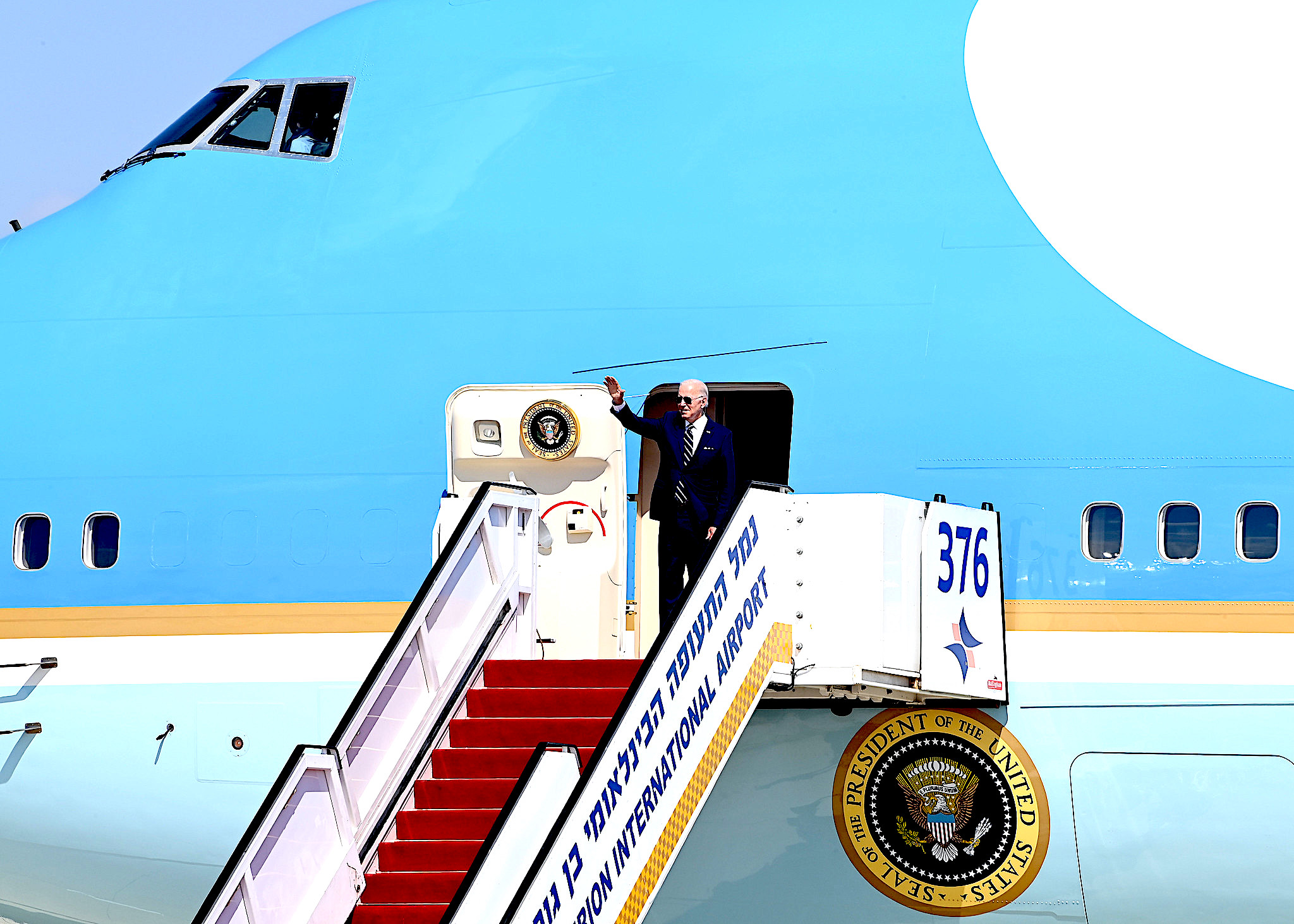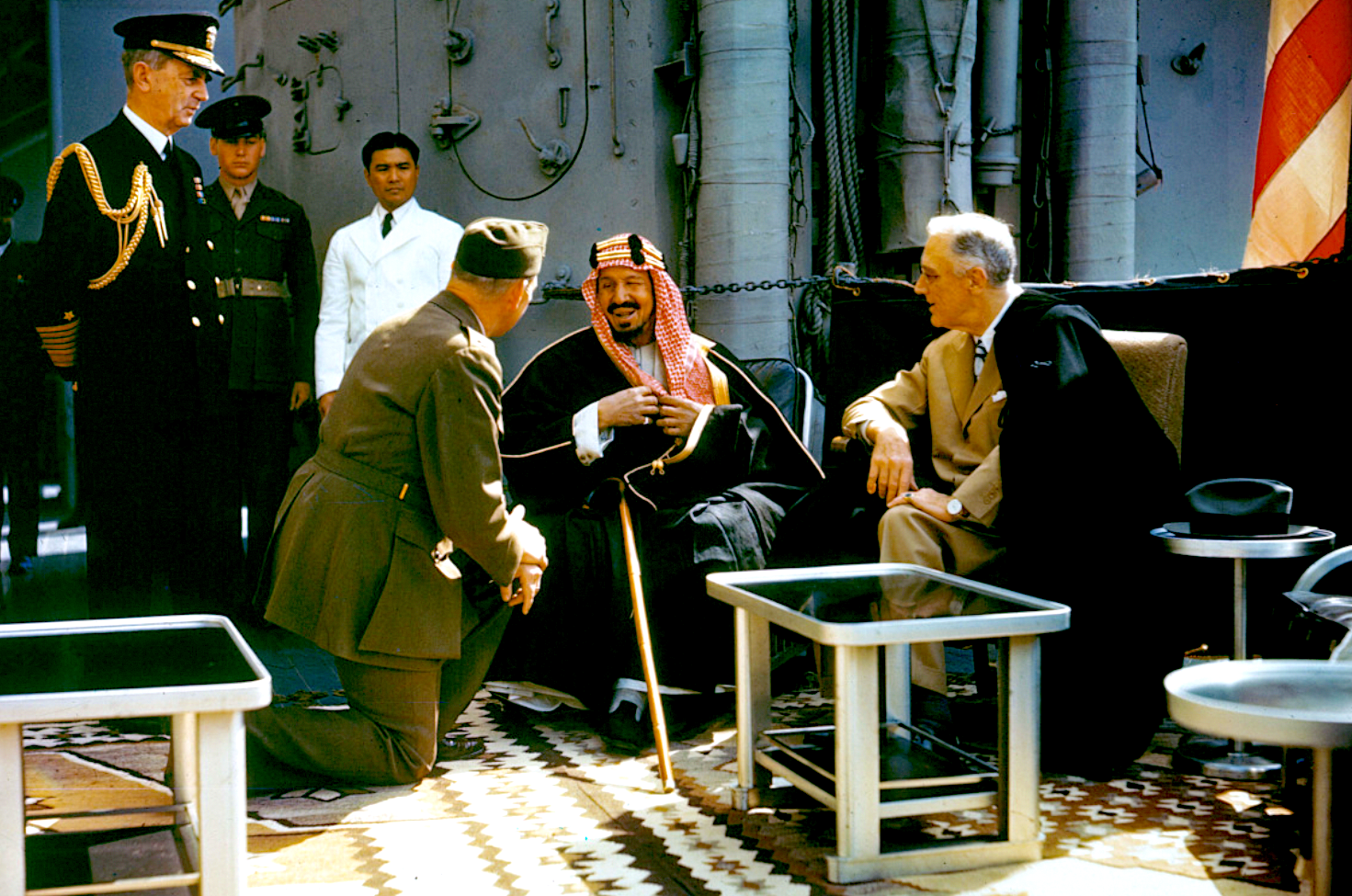Diana Johnstone responds to readers’ comments on “The Myth of Israel as ‘US Aircraft Carrier,” an article she recently co-authored with Jean Bricmont.
By Diana JOHNSTONE
❗️Join us on Telegram![]() , Twitter
, Twitter![]() , and VK
, and VK![]() .
.
Contact us: info@strategic-culture.su
As was to be expected, considering the extreme complexity of the U.S.-Israel relationship, our recent article on “The Myth of Israel as ‘US Aircraft Carrier’ in Middle East,” far from settling this controversial issue, aroused numerous objections. We see these disagreements as an invitation to respond, in the hope that a friendly debate can contribute to clarifying the issues.
The Aircraft Carrier Image
A reader directly asks us “what individual or entity is the quotation ‘The Myth of Israel as “US Aircraft Carrier” in Middle East’ borrowed from or attributed to?”
There is no single answer, inasmuch as this image is used quite frequently, originally by advocates of the U.S.-Israel alliance, to justify it. That the Zionists make this claim is to be expected, and is no more credible than their other claims.
Our questioning of that expression is directed primarily at pro-Palestinian friends, usually on the left who accept and spread the belief that Israel is a U.S. “strategic asset,” usually meaning it contributes to U.S. control of Middle East oil.
This assumption is often based on the notion that a capitalist power must act in its own economic interest, and thus could not be fooled by ideology or bribery into acting against its own interests.
Not wanting to engage in ad hominem attacks on commentators with whom we largely agree on just about everything else, we have been reluctant to name names. But here goes: a perfect example is a recent interview with the excellent economist Michael Hudson by Ben Norton. Both identify as Marxist. Their interview is titled “Israel as a Landed Aircraft Carrier.”
Norton introduces his interview by citing Biden’s notorious declaration, “if there were not an Israel, we would have to invent one.”
Michael Hudson takes up the theme. He stresses that U.S. support to Israel, is “not altruistic” (no doubt), and provides his own explanation.
“Israel is a landed aircraft carrier in the Near East. Israel is the takeoff point for America to control the Near East…The United States has always viewed Israel as just our foreign military base…”
His initial justification for this statement is historic.
“When England first passed the act saying that there should be an Israel, the Balfour Declaration, it was because Britain wanted to control the Near East and its oil supplies…”
However, we maintain that the reasons for the Balfour Declaration (discussed at length in the book by Alison Weir that we cite) are long out of date and cannot explain current U.S. official devotion to Israel.
By the time Israel came into being, after World War II, the U.S. had effectively taken control of the region and its oil sources and had no particular interest in Israel.
Saudi King Ibn Saud converses with FDR (right) through an interpreter, Feb. 14, 1945, on board the USS Quincy, in the Suez Canal, during which U.S. secured Saudi oil flows in exchange for U.S. security guarantees. (U.S. Navy/Wikimedia Commons)
Hudson’s second justification is a generalization about U.S. imperialism:
“And that’s really the U.S. strategy all over the world; it’s trying to fuel other countries to fight wars for its own control.”
But in fact, the fighting and dying in the Middle East has been done by the United States itself and certain NATO allies, while the only people Israeli soldiers are actively fighting are the Palestinians, whose destruction provides no advantage to the United States.
Hudson’s third justification is an anecdote. From his work at the Hudson Institute, he became a close associate of Israeli Prime Minister Benjamin Netanyahu’s main national security adviser, Uzi Arad. Once they were together at a party in San Francisco, and
“one of the U.S. generals came over and slapped Uzi on the back and said, ‘you’re our landed aircraft carrier over there. We love you.’ ”
So that is what a U.S. general said, and probably believed. It is certainly what the Israeli lobby has been telling the Americans for a long time, to justify all that money and military aid. But is it true?
Perhaps one can say that Israel is an aircraft carrier salesman who never delivers the aircraft carrier. Because Israel for a long time has had the rare privilege of NOT housing a U.S. military base, or at least not housing it openly.
Only in 2017, the U.S. and Israel revealed the inauguration of “the first American military base on Israeli soil,” which the U.S. military said was not an American base but merely living quarters for U.S. personnel working on a secret Israeli radar site in the Negev desert evidently spying on Iran. This facility serves Israeli defense interests. Some aircraft carrier!
And all through the Middle East, the U.S. has its own floating aircraft carriers, as well as great big genuine, non-floating military bases. The largest is Al Udeid Air Base in Qatar, and there are important military bases in Bahrain, Kuwait, Saudi Arabia and the United Arab Emirates.
Netanyahu as Zelensky
However, Hudson’s argument does not in fact explain how Israel serves U.S. purposes as a military asset, as an “aircraft carrier” in the sense of an unsinkable military base which the U.S. can use to attack its enemies. Rather, Hudson sees Israel as an expendable pawn, a puppet used by Washington to trigger a war that the U.S. wants to wage against Iran, to the ruin of Israel itself.
Hudson sees Netanyahu as “the Israeli version of Zelensky in the Ukraine.” Just as the U.S. used Ukraine to provoke Russia, the United States pushes Netanyahu to escalate against Gaza so that he will provoke Hezbollah to come to the aid of the Palestinians, and since Hezbollah is described as an Iranian proxy, this will be the excuse for the U.S. to go to war against Iran.

March 21, 2019: Netanyahu on phone with U.S. President Donald Trump during a visit by U.S. Secretary of State Michael Pompeo to Jerusalem. (U.S. State Department/Ron Przysucha)
Hudsdon said:
“The whole world has noticed that the U.S. now has two aircraft carriers in the Mediterranean, right off the Near Eastern shore, and it has an atomic submarine near the Persian Gulf…. And it’s very clear that they’re there not to protect Israel, but to fight Iran. Again and again, every American newspaper, when it talks about Hamas, it says Hamas is acting on behalf of Iran….
America isn’t trying to fight to protect Ukraine. It’s fighting for the last Ukrainian to be exhausted in what they’d hoped would be depleting Russia’s military. …Well, the same thing in Israel. If the United States is pushing Israel and Netanyahu to escalate, escalate, escalate, to do something that at a point is going to lead [Hezbollah leader Hassan] Nasrallah to finally say, ‘okay, we can’t take it anymore.
We’re coming in and helping rescue the Gazans and especially rescue the West Bank, where just as much fighting is taking place. We’re going to come in.’ And that’s when the United States will then feel free to move not only against Lebanon, but all the way via Syria, Iraq, to Iran.”
So this implies that the U.S. military and civilian strategists are eager to find an excuse to go to war with Iran, after having failed to gain full control of Iraq, Libya, Afghanistan or Syria after attacking them militarily (with help from certain NATO allies, but not from Israel). And Iran is a much more formidable power than any of those.
Meanwhile, the U.S. Armed Forces are having difficulty in recruitment (although they may be counting on filling the ranks with some of the undocumented immigrants flooding across the southern borders). Bogged down in Ukraine, preparing for conflict with China, are U.S. leaders really eager to get into a major war with Iran?
This speculation raises the key question raised by a number of Consortium News readers: what is meant by the U.S. national interest?
The National Interest
As we anticipated, there are readers on the left who interpret our appeal to “the national interest” as proof that we are defenders of capitalism. One reader writes: “The defense of capitalism in this article is truly bewildering. The authors conflate U.S. interests with Corporate interests.” That conflation is being done by the reader who assumes that “national interest” cannot be diversely defined.
Our position is simple. We are not aware of any realistic prospect for abolishing the American capitalist system in the foreseeable future, even though there are many symptoms of its radical decline both domestically and in international relations. This decline is due largely to the way the “national interest” is currently defined and pursued.
“This assumption is often based on the notion that a capitalist power must act in its own economic interest, and thus could not be fooled by ideology or bribery into acting against its own interests.”
Our view is that even under capitalism, some policies are better or worse than others. When it comes to the urgency of the survival of the Palestinian people, or more broadly, of sparing humanity the devastation of nuclear war, prudent policies are worth the risk of benefiting some less harmful branches of capitalism in some way.
Although the political system is largely paralyzed, there exist contrary ways of defining the national interest, and some are more perilous for the future of humanity than others.
The current policies that define the official “national interest” in the United States did not spring forth from a unanimous understanding or scientific analysis of what is best for capitalist profit or for anything else. The current ruling foreign policy doctrine is the product of specific influences and individuals that can be named and identified.
To be precise, the “national interest” that is being pursued by the current administration both on the elected top and especially the deep state below is a theoretical construct that has been created by the convergence of two powers that have excluded their rivals from the process.
These two powers are the military-industrial complex and the intellectual branch of the Zionist lobby, known as the “neoconservatives.”
The Lobby as Policy Maker
Biden in Israel, July 2022. (U.S. Embassy Jerusalem, Flickr, CC BY 2.0)
U.S. foreign policy has encountered moments where positive change was possible: after withdrawal from Vietnam, and even more, after the collapse of the Soviet Union. At that point, all the interests linked to the military industrial complex were under threat from the prospect of a “peace dividend” involving substantial disarmament.
What was needed was a fresh ideological justification for the MIC, and this was provided by the growing influence of the privately-financed think tanks that began their takeover of foreign policy definition in the 1970s.
In the following decades, these institutions came under the decisive influence of Zionist donors such as Haim Saban, Sheldon Adelson and AIPAC itself, which founded the Washington Institute for Near East Policy. These think tanks provided echo chambers for pro-Israel neocon intellectuals to shape editorial policy of major liberal media as well as foreign policy itself.
Here is the point: current U.S. policy is not the natural expression of “capitalist corporate interests,” but rather is the product of that process, of the deliberate takeover of U.S. foreign policy by a highly motivated, coherent and talented group of intellectuals, some with dual U.S.-Israeli citizenship. This policy has a name: the Wolfowitz Doctrine.
The Wolfowitz Doctrine & PNAC
The text is available on internet and speaks for itself. It was written as the initial version of the Defense Planning Guidance for the 1994–1999 fiscal years in the office of Under Secretary of Defense for Policy, Paul Wolfowitz, an ardent Zionist.
The version leaked to The New York Times in March 1992 was officially toned down after it caused an uproar, but it has remained as the guidelines for aggressive U.S foreign policy ever since.
Basically, the doctrine announces that the main objective of the United States is to retain its status as the world’s only remaining superpower. No serious rival must be allowed to develop.
This amounts to decreeing that history has come to a stop, and denies the natural historical process whereby China, for instance, which in the past was a leading power, must not be allowed to resume that status.

Wolfowitz during a press conference at the Pentagon on March 1, 2001. (DoD photo by R. D. Ward)
In 1997, neocons William Kristol and Robert Kagan founded the “Project for the New American Century” with the clear purpose of defining U.S. foreign policy in line with the Wolfowitz Doctrine.
As the “world’s pre-eminent power,” the United States must “shape a new century favorable to American principles and interests.” This was to be done neither by virtuous example nor by diplomacy, but by military strength and the force of arms.
PNAC members including Vice President Dick Cheney, Donald Rumsfeld and Wolfowitz took control of policy under President George W. Bush and have kept it ever since.
Inside one administration after another, Robert Kagan’s wife, former Cheney aide Victoria Nuland (who last week said she would be resigning her State Dept. position) has advanced the neocon agenda, notably by managing the Ukrainian disaster. PNAC dissolved itself in 2006, announcing that its job was done.
This job amounted to linking the powerful military industrial complex to the global extension of U.S. power that was turned first and foremost against Israel’s Arab neighbors, starting with Iraq.
This branch of the Lobby, inside the government itself and mainstream media, on the false claim that Iraq was a dangerous enemy of the U.S., got the U.S. to attack and destroy a regime that was in fact an enemy of Israel.
The U.S. was fighting on Israel’s behalf, not the other way around.
The neoconservatives have designed the policy which AIPAC pays members of Congress to support. Every senator has taken AIPAC money.
National Interests Can Be Redefined
The Wolfowitz doctrine is expressed in Nuland’s anti-Russian Ukrainian policy as well as in the American provocations surrounding Taiwan. These policies are not inevitable, even under capitalism.
The expansion of NATO, as an example, was firmly opposed by a generation of U.S. foreign policy experts who have been sidelined and expelled from the policy-making process by the triumphant neocons.
Some are still alive, and others can emerge. So it is neither far-fetched nor “pro-capitalist” to suggest that a more realistic, less arrogant and belligerent foreign policy might be possible.
Such a change cannot be easy, but may be favored precisely by growing recognition of the multiple failures of the reigning neoconservative foreign policy.
For this, a free debate is necessary, in which it is possible to challenge the role of the Lobby without being accused of plagiarizing the Protocols of the Elders of Zion.
It is obvious that in the United States, where this debate is most significant, there are Zionists who are not Jewish, while a very large proportion of the Jewish population is highly critical of Israel and has nothing to do with the Lobby.
The government in Jerusalem proclaiming itself “the Jewish State” as it slaughters native Palestinians is responsible for any current rise in misguided anti-Jewish feelings, which that government blatantly exploits to attract Jewish immigrants from France and New Jersey, in particular.
A reader suggests: “Some folks may find it emotionally and psychologically comforting to blame The Lobby and Israel for the evil of U.S. foreign policy, and somehow the good ol USA is an unwitting victim.”
Can’t we more accurately suggest: “Some folks may find it emotionally and psychologically comforting to blame the U.S. foreign policy for everything rather than risk the inevitable furious reactions to any mention of the Lobby and Israel?”
“The U.S. was fighting on Israel’s behalf, not the other way around.”
Certainly U.S. foreign policy is responsible for everything it does, and that is a gigantic evil. But that does not mean that everyone else is totally innocent.
The Lobby is most certainly responsible for doing all it can to encourage the very worst tendencies in U.S. arrogant exceptionalism, the MIC, Islamophobia and Christian evangelical fantasies, when they can be used against Israel’s adversaries.
And we maintain that encouraging the worst tendencies is not in the American interest.
Original article: consortiumnews.com









